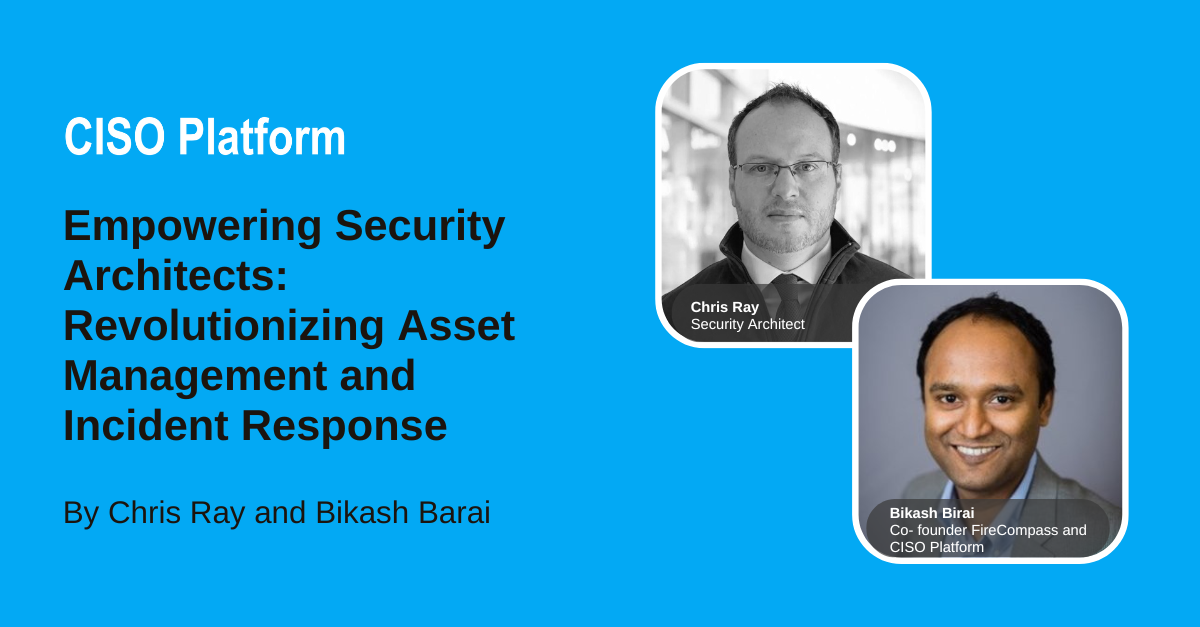In the ever-evolving landscape of cybersecurity, security architects emerge as the linchpins of organizational defense, wielding their expertise to navigate complex systems and ensure robust security postures. However, their efforts are often hampered by the lack of visibility into the organization's attack surface and the burden of manual tasks in incident response. In this blog, we explore the pivotal role of security architects and their quest for solutions that automate asset management and enhance incident response capabilities.
Here is the verbatim discussion:
Either uh and then taking it down you know the Architects they are the ones that are involved working with other teams inside the organization they know the architecture or their systems better than almost anybody they also know that hey we have security tooling that just doesn't have any visibility into this stuff so they they've been looking for a solution that can automatically keep tabs on the attack surface as it changes and as they deploy it through architectural changes you know the engineers is the analyst uh that's another for them they are looking for something that's going to take the tier zero tier one maybe some of that tier two work off from their plate you know something's going to go out and identify accurately with high confidence hey this asset is on this IP address and it's this this and this you don't need to go and perform the manual steps here's some context now that you have this context do the things that you're good at as a human and and look at it and scrutinize it and say okay sometimes it's a bad question to ask me because I have vested interest right but if I keep my vested interest aside uh so I had been um kind of a ciso advisor for a few companies huh uh part of the like Advisory Board from the cyber security perspective so I remember for all the companies where I had been part of it um the moment I kind of joined the Advisory Board there were two big questions which I had in my mind and one was that do we know what our security posture is and for knowing that I have to know my assets right I mean without knowing the assets and its risk I mean it's incomplete right so this becomes a fundamental question like do we know all our assets and the risk associated with it that's one question and the second is if there is a breach will we be able to recover safely
Chris Ray, a seasoned professional in the cybersecurity field, brings a wealth of experience from small teams to large financial institutions, as well as industries such as healthcare, financials, and tech. He has acquired an extensive amount of experience advising and consulting with security vendors, helping them find product-market fit as well as deliver cyber security services.
Bikash Barai is credited for several innovations in the domain of Network Security and Anti-Spam Technologies and has multiple patents in USPTO. Fortune recognized Bikash among India’s Top 40 Business Leaders under the age of 40 (Fortune 40-under-40).Bikash is also an active speaker and has spoken at various forums like TiE, RSA Conference USA, TEDx etc.
Earlier he founded iViZ an IDG Ventures-backed company that was later acquired by Cigital and now Synopsys. iViZ was the first company in the world to take Ethical Hacking (or Penetration Testing) to
the cloud.


Comments